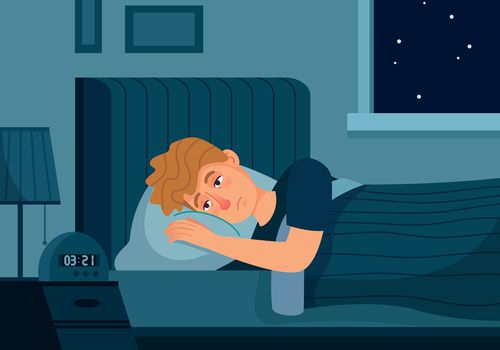
From a very young age, we instinctively know that not sleeping enough is a bothersome thing. At the very best, we will be grumpy for the rest of the day. Once you become older, you will find that sleep deprivation severely impacts your ability to study, work, or pretty much do anything even remotely productive. But did you know how unhealthy sleep deprivation is for our body in the long term?
There are plenty of reasons why many of us have trouble sleeping. For instance, studies show that every third person suffers from a profound lack of sleep on a chronic basis. Naturally, some of the reasons for this are obvious — such as too much work, staring at screens, and general insomnia.
What many of us don’t know about is that such sleeplessness has long-term effects that are positively disastrous. If you continuously find yourself not sleeping, you have a sizable chance of suffering from incredibly serious issues down the line — from diabetes and heart disease to obesity.
Do We Need A Lot of Sleep?
One of the all-time questions everyone has about sleep is — just how much of it do we actually need? A majority of people function well with eight hours of sleep; though some people need less, and some people need more. At the end of the day (no pun intended) our ideal sleep cycle is something each of us has to figure out on their own.
Though, there are some general guidelines and rules on this that you can follow. For instance, if you think that you’ve had a full night’s sleep but you wake up and proceed to be tired the entire day; chances are that you simply haven’t gotten all the sleep that your body needs. If you want to see precisely how long you’ve slept, sleep trackers are great gadgets that can be of immense use.
Of course, there are specific factors that could be triggering your poor sleeping — we’re talking about underlying health conditions that can cause breathing problems during the night, like sleep apnoea. However, for a majority of people, daily fatigue is simply due to badly regulated sleeping habits.
What If I Don’t Sleep?
We’ve all gone through the sorry absence of focus, a bad temper, and the general fatigue that comes after you haven’t slept well the previous night. And this is something that happens to everyone from time to time — there are no perfect sleepers. If you spend a night with minimal sleep on occasion, that probably won’t harm your health in the long term. You’ll simply be irritable and tired the following day.
However, if this becomes a chronic problem for you, we’re talking about something more serious. You will experience brain fogginess — making proper decisions and concentrating on intellectual work will become night impossible. Plus, you’ll be in a constant state of mild depression — always on the verge of dozing off during the day, but unable to actually sleep at night. Depending on your job and home life, this may also increase the chances of sustaining injuries; not to mention that your driving will be as impaired as that of someone who’s been drinking.
Sleep Benefits
Sleep is incredibly important for your immunity. If you find yourself constantly catching colds, consider your bedtime, and see if you’re getting enough sleep on average. Chronic insomnia is a well-known disruptor of human immunity.
Also, if you don’t get enough sleep, you’ll have a harder time staying fit. People with insomnia put on weight far more easily. Many studies have confirmed that individuals that don’t get their seven hours of daily sleep have “better” chances of obesity down the line. This is no coincidence — sleeping increases the leptin levels in your body — this is the hormone that provides you with a feeling of fullness after you’ve had enough to eat.
As you might have gathered already, sleep is also incredibly crucial for your mental wellbeing. It’s only logical — remember how moody and irritable you get once you haven’t slept well for just a single day. Now think about how much that effect would be exacerbated if you were dealing with chronic sleeping issues. Not having enough sleep is a well-known component of anxiety and depression.
In fact, surveys of people with abovementioned mental conditions have revealed that most such individuals don’t sleep for more than six hours each night. And as we’ve pointed out, chronic sleep deprivation increases the risk of physiological issues as well — such as diabetes.
Getting less sleep than your body needs actually impacts the way our bodies work on processing glucose — the main source of energy in our bodies. The result of that change can be type 2 diabetes.